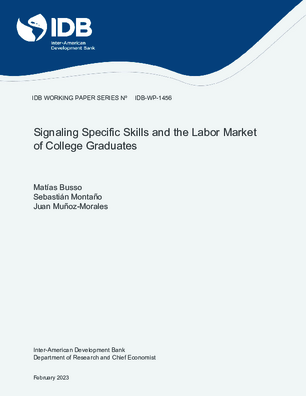Signaling Specific Skills and the Labor Market of College Graduates
Date
Feb 2023
We study how signaling skills that are specific to college majors affect labor market outcomes of college graduates. We rely on census-like data and a regression discontinuity design to study the impacts of a well-known award given to top performers on a mandatory nationwide exam in Colombia. The award allows students to signal their high level of specific skills when searching for a job. These students earn 7 to 12 percent more than otherwise identical students lacking the signal. This positive return persists five years after graduation. The signal mostly benefits workers who graduate from low-reputation colleges, and allows workers to find jobs in more productive firms and in sectors that better use their skills. We rule out that the positive earnings returns are explained by human capital. The signal favors mostly less advantaged groups, implying that reducing information frictions about students skills could potentially shrink earnings gaps. Our results imply that information policies like those that formally certify skills can improve the efficiency in talent allocation of the economy and, at the same time, level the playing field.




